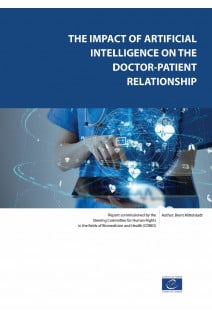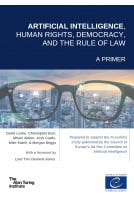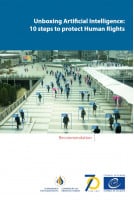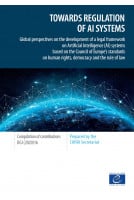The impact of AI on clinical care and the doctor-patient relationship remains uncertain and will certainly vary by application and use case.
The Council of Europe’s Steering Committee for Human Rights in the fields of Biomedicine and Health (CDBIO) issued a new report on the impact of artificial intelligence on the doctor-patient relationship, prepared by Brent Mittelstadt, Senior Research Fellow and Director of Research at the Oxford Internet Institute, University of Oxford.
The report examines AI systems regarding the doctor-patient relationship in relation to the human rights principles referred to in the European Convention on Human Rights and Biomedicine of 1997, otherwise known as the “Oviedo Convention”. More specifically, the report investigates the potential human rights impact of AI according to six themes: (1) Inequality in access to high quality healthcare; (2) Transparency to health professionals and patients; (3) Risk of social bias in AI systems; (4) Dilution of the patient’s account of well-being; (5) Risk of automation bias, de-skilling, and displaced liability; and (6) Impact on the right to privacy.
1 ESSENTIAL ELEMENTS 2 INTRODUCTION 3 BACKGROUND AND CONTEXT
Common ethical challenges in AI
The Oviedo Convention and human rights principles regarding health
4 OVERVIEW OF AI TECHNOLOGIES IN MEDICINE 5 THEORETICAL FRAMEWORK OF THE DOCTOR-PATIENT RELATIONSHIP
Professional ethics in medicine
Fiduciary duties and the healing relationship
Emergent challenges in the doctor-patient relationship
6 POTENTIAL IMPACT OF AI ON THE DOCTOR-PATIENT RELATIONSHIP
Inequality in access to high quality healthcare
Transparency to health professionals and patients
Risk of social bias in AI systems
Dilution of the patient’s account of well-being
Risk of automation bias, de-skilling, and displaced liability
Impact on the right to privacy
7 RECOMMENDATIONS FOR COMMON ETHICAL STANDARDS FOR TRUSTWORTHY AI
Intelligibility requirements for informed consent
Public register of medical AI systems for transparency
Collection of sensitive data for bias and fairness auditing
8 CONCLUDING REMARKSAppendix: Medical virtues








